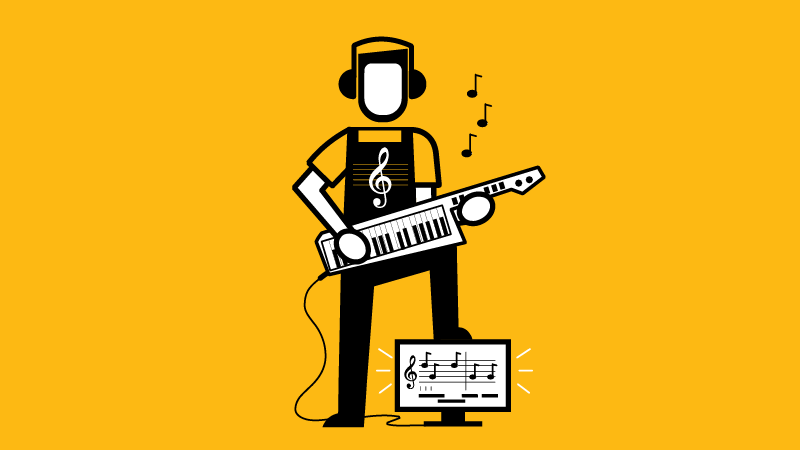Post-production
Composer (post-production)

What does a composer do?
A composer in the screen industries creates the music that enhances the emotional experience of a film, TV programme, or game with a well-known signature tune lets the viewer know a programme is starting.
This music could come from a music library; it could be an existing piece of popular music, or it could be created specifically for the film or programme. In all cases, it’s the work of the composer.
If it’s a feature film soundtrack, the composer works closely with the director to create music that develops the mood of the film and the characters. Together they decide where to add to the excitement of a sequence, such as a car chase or battle scene, or to help develop a key character with an individual theme that underscores their appearance – such as the Imperial March that’s often heard when Darth Vader enters a scene in the Star Wars films. The role of the music is to raise and lower the tension and guide the audience, but it shouldn’t be overwhelming. A composer also needs to know when it’s time for silence.
In unscripted TV, a composer might be commissioned to write the underscore to a countdown in a quiz game, or a fanfare to be played when a contestant hits the jackpot. They might be required to write an attention-grabbing piece of title music that quickly becomes associated with a programme. For many programmes, the composer will provide a number of related themes, but of different lengths and with differing emotional impacts, so they can be selected for the right moment.
On a drama, the composer usually works to the edited film, precisely fitting their music to the pictures and dialogue. They usually write on a midi keyboard hooked up to a computer, which means they can draw on a vast selection of samples of every different type of instrument and style of music. Then, if there is both budget and time, they will arrange the music for a full orchestra. Often, though, the final music will be created using samples.
Two other areas that need great composers are advertisements, where the challenge is to create a memorable theme in just a few seconds, and games, which have become one of the most challenging arenas for composition and are providing huge amounts of work for leading orchestras all over the world.
Most composers are freelance.
Watch
- Day at work: film composer
- How does a composer create film music?
- Inside Game of Thrones: a story in score (HBO)
What’s a composer good at?
- Music: know the history and construction of music, compose in different styles and genres, improvise, read scores, create themes quickly under the pressure of deadlines
- Communication: be able to understand what the director is trying to achieve, know how to connect with the audience
- Storytelling: appreciate the narrative in films, games or advertisements, know how music affects images and adds drama, have a passion for the industry
- Collaboration: listen to the director, translate the vision into music, be flexible, communicate the vision with the editor, composer and other musicians
- Using software: produce electronic scores using technology such as ProTools, use editing and mixing software
Who does a composer work with?
Composers work most closely with the directors on films or TV programmes or game designers on games. If a film has a music editor, the composer will work with them.







